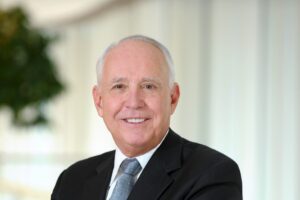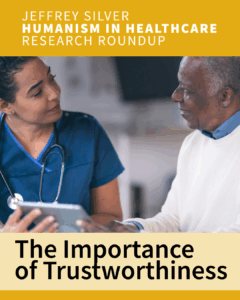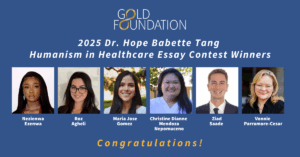The Arnold P. Gold Foundation is pleased to announce that 17 medical students have been selected as 2020 Gold Student Summer Fellows, each embarking on a summer project that will directly aid underserved communities during the COVID-19 pandemic. As part of the Gold Foundation’s work to address the wide-ranging impact of COVID-19, these projects were chosen for their focus on populations who are facing healthcare disparities and are particularly vulnerable during this crisis.
This year’s projects range in scope and topic, including:
- primary care for people who are homeless
- educational materials and resources for low-income individuals who are suffering from food insecurity and type II diabetes
- advocacy and health system navigation support for individuals accessing community health resources
- text message services for diabetes self-management
- the mental health needs of survivors of intimate partner violence
- health and hygiene outreach for populations who are transient
- virtual healthcare delivery, community action, and humanities-based medical education during the pandemic
This annual program offers medical students an opportunity to embark on summer projects that enhance understanding and/or culturally competent practice. These initiatives help students to develop skills to become relationship-centered physicians while addressing a public health need in an underserved population.
“We are glad to support these incredible student leaders and are grateful to their medical schools for reinforcing the importance of meeting the whole health needs of patients,” said Elizabeth Cleek, PsyD, Chief Operating Officer of the Gold Foundation. “As we have learned time and again, it is the patients themselves who teach the most, and we hope these fellowships provide an opportunity for collaborations between practitioners and patients, as well as a step toward addressing the needs of individuals and communities so disproportionately impacted by the COVID-19 pandemic.”
The 17 Gold Student Summer Fellows this year hail from eight medical schools across America and Canada, from California to New York to Florida.
The 2020 Gold Student Summer Fellows are:

Muhammad Khan (Jeenan Kaiser not pictured)
Jeenan Kaiser, MS1; Muhammad Khan, MS1 | University of Alberta
A Community-Engaged Approach to Understanding and Supporting the Mental Health Needs of Intimate Partner Violence Survivors from Underserved Communities during COVID-19: An Intersectional Mental Health Improvement Plan
During the COVID-19 pandemic, quarantine protocols created exceedingly difficult experiences for individuals who were already experiencing intimate partner violence (IPV). With the aid of a psychologist, students will conduct a facilitated workshop for women with lived experiences of IPV. Together, the women will develop a Wellness Toolkit that will include tools and other resources to enhance their mental health and relieve emotional and psychological stress. Together with the team, these women will establish action plans to identify strategies to enhance their wellness.


Megan Rose Donnelly, MS1; Lily Hui, MS1; Christina D. Fang, MS1; Sung Mee Park, MS1; Dawn Liang, MS1 | University of California, Irvine School of Medicine
Community Health and Health Disparities in the Time of the COVID-19 Pandemic: Development of Patient Education Tools for the Underserved Population of Garden Grove, CA
This project calls attention to issues surrounding COVID-19, particularly the limited healthcare resources and the lack of access to these resources by at-risk populations, including those who are without a home and/or insurance. This project aims to improve the access to and understanding of healthcare in Garden Grove, California, by developing educational materials and resources about diabetes and hypertension tailored to this community, providing social worker-approved resources to patients of UC Irvine’s student-run Free Clinic Project to help them navigate the complicated insurance system, and offering healthy and affordable recipes and grocery lists to patients.

Melodyanne Cheng, MS2 | University of California, Los Angeles
Companion Care: A Quality Improvement Project to Help Reintegrate Vulnerable Unhoused Patients into Existing Primary-Care Services During the COVID-19 Pandemic
This quality improvement research project aims to impact the services provided by Companion Care, a volunteer-based program which serves patients at a student-run clinic in West Hollywood. These companions act as personal advocates who will provide direct support to homeless individuals; a population who is vulnerable to infection and poorer health outcomes, especially during the COVID-19 crisis. This population also experiences structural violence, putting them at higher risk for discrimination, difficulty accessing healthcare, and increased morbidity and mortality. Companion Care adapts the accompaniment framework to reduce barriers to accessibility by making next-day appointments at their partnered Federally-Qualified Health Center, assisting in healthcare navigation, and enhancing individual-level advocacy. The overall objective of this study is to characterize the Companion Care patient population, understand their medical/social needs, and evaluate patient experience within the Companion Care program.

Banafsheh Nazari, MS1 | Morehouse School of Medicine
Evaluating the Satisfaction of an Underserved Patient Population with Virtual Healthcare Delivery at the HEAL Free Clinic during the COVID-19 Pandemic
During COVID-19, virtual healthcare can be an effective alternative for conventional appointments, both to serve the community, and to help avoid overwhelming the healthcare system. This study aims to evaluate patients’ readiness to use telemedicine during this pandemic. Being aware of the needs of the community at the Health Equity for All Lives (HEAL) free-clinic is essential in optimizing delivery of these services.
During this project, the student will contact clinic patients who have consented to use telemedicine to provide guidance on the use of all virtual services. Patients will complete a survey to share obstacles related to the use of telemedicine services. This data will be used to identify and implement interventions to barriers in an effort to improve patients’ adherence to their virtual visits.

Ngantu Le, MS1; Keanu McMurray, MS1; Henry Rice, MS1; Sabel Witmer, MS1 | University of Nevada, Reno
Northern Nevada Health and Hygiene Student Interest Group during COVID-19
This project aims to provide hygiene and healthcare supplies, as well as advice during the COVID-19 crisis to individuals who utilize the services of the Northern Nevada Hopes Clinic. This population typically includes homeless individuals or individuals of extremely low socioeconomic status. These students will work on providing education and access to hygiene products in order to decrease the disparity in health for the homeless community.

Jody Esguerra, MS2 | Oakland University William Beaumont School of Medicine
Text2StayOnTrack: Improving diabetes self-management and health during COVID-19 through personalized text messages to uninsured patients at a free clinic
Type 2 diabetes mellitus is an increasing problem across the United States that disproportionately affects minorities and the underserved. The current COVID-19 pandemic compounds the public health challenge for these already vulnerable populations. One way that health clinics can reduce strain of an overburdened medical system is to implement telehealth services to address patients’ ongoing health care needs. This initiative aims to implement a simple text messaging-based intervention for individuals with diabetes that addresses medication adherence, diet, physical activity, and glucose tracking while following social distancing guidelines. Individualization to patients’ primary language and health literacy levels will allow the information content to better match patients’ understanding of their disease and optimize self-management.

Janani Arangan, MS1 | Frank H. Netter MD School of Medicine at Quinnipiac University
Grocery Voucher Pilot: Addressing Food Insecurity Among Low-Income Patients with Type 2 Diabetes in New Haven, Connecticut:
Food insecurity has worsened in the context of the COVID-19 pandemic. The primary purpose of this research is to compare the effectiveness of telemedicine appointments to in-person appointments in engaging low-income patients with Type 2 diabetes. For patients with Type 2 diabetes, this study will pilot a grocery voucher program in partnership with the Fair Haven Community Health Care clinic in New Haven, Connecticut. Patients, many of whom come from low-income and immigrant communities, can exchange these vouchers for diabetes-friendly food options. Through administering patient surveys and conducting interviews, Ms. Arangan hopes that this work will culminate in an accessible and sustainable grocery voucher program at the clinic.

Lauren Linkowski, MS1; Madeline Hooper, MS2 | University of South Florida, Morsani College of Medicine
Reframing social disposability: Tampa Bay Street Medicine photo narrative project for humanities-based medical education and community action during the COVID-19 pandemic
This project is intended to provoke reflection and greater understanding of the people in the Tampa Bay Area regarding the impact of COVID-19 on the local homeless and refugee communities. Students at the University of South Florida (USF) will provide free healthcare services to the Tampa homeless community through the USF Morsani College of Medicine (MCOM) student-led organization Tampa Bay Street Medicine (TBSM). In addition, TBSM patients will be given a disposable camera from which photo essays will be created. The photo essays will be displayed on the TBSM Humanities Blog, at the TBSM Clinics, and integrated into interprofessional education activities taught at USF MCOM. The photo essays will offer patients the opportunity to share what’s important to them with their healthcare team.


